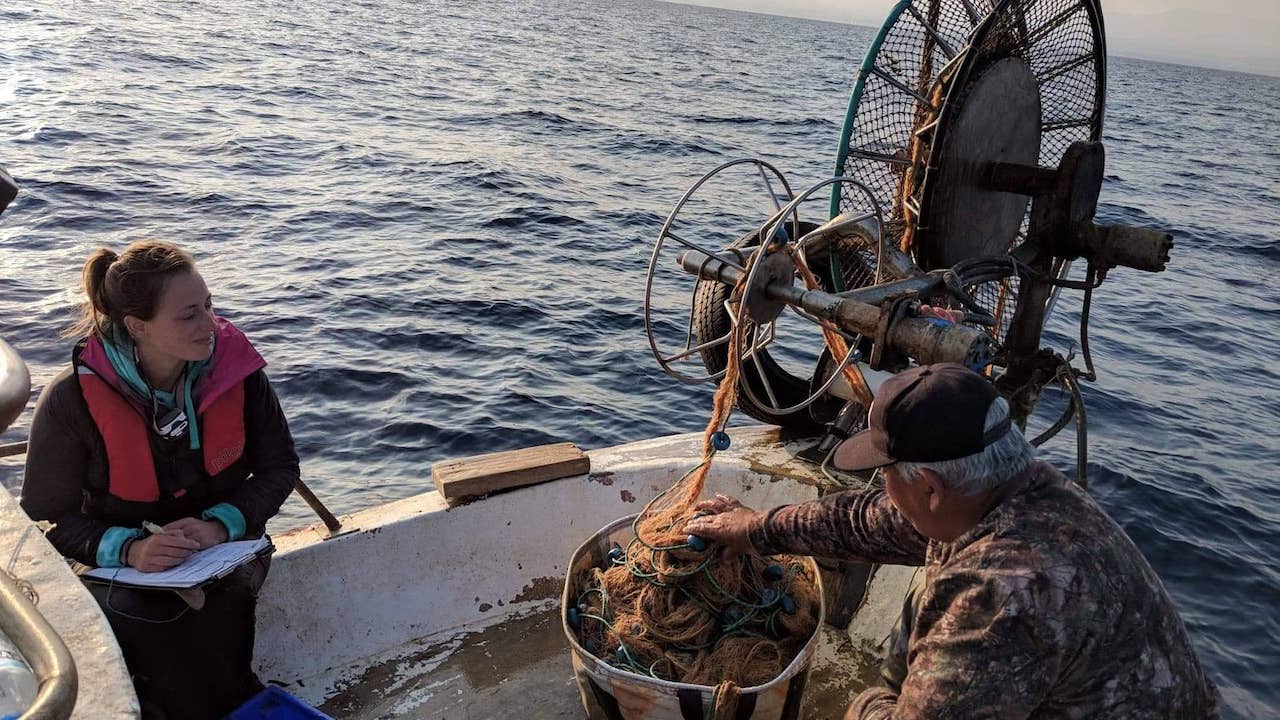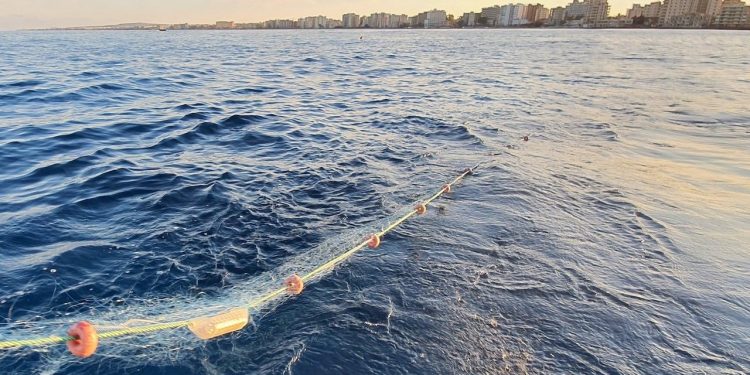British scientists have come up with a bright idea that could help save the Mediterranean’s threatened sea turtles.
Researchers from the University of Exeter and the Society for Protection of Turtles working with fishermen in Cyprus, have shown that illuminating nets can significantly reduce by-catch of turtles.

NetLight, developed by conservation engineers Fishtek Marine, is a small, long lasting, banana-shaped light powered by two AA batteries, which can easily be rigged to the frame lines of nets to alert turtles to the danger.
Trials with Cypriot fishermen have shown that using NetLights reduced the number of sea turtles being trapped by 42%. The results are revealed in a new research paper: Flashing NetLights reduce bycatch in small-scale fisheries of the Eastern Mediterranean published in the journal Fisheries Research.
‘Around Cyprus, over 2800 sea turtles die in nets every year,’ said Robin Snape a researcher at Bluedot Associates and associate researcher at the University of Exeter’s Centre for Ecology and Conservation in Cornwall.
‘Our trials with local fishermen and NetLight have shown that this can be significantly reduced. This device has real potential in marine conservation.’
He added our work has also revealed that NetLights can reduce the by-catch of other threatened species, especially rays, numbers of which fell by 53% when the lights were used.
‘These trials have been very encouraging and show that NetLight has an important role in helping protect sea turtles,’ said Pete Kibel, co-founder and director of Devon-based Fishtek Marine.
‘This is also good news for the local fishermen in Cyprus, as by-catch of turtles can damage their nets and reduce their ability to make a living from fishing.’
Fishtek is currently in the process of crowdfunding £1 million with Triodos Bank to invest in developing its range of bycatch prevention and smart fishing technologies.
‘Working with partners like Fishtek Marine allows us to combine Exeter’s expertise in marine research with their brilliant engineering, to address major challenges such as by-catch,’ said Professor Brendan Godley, who leads the Exeter Marine research group.









